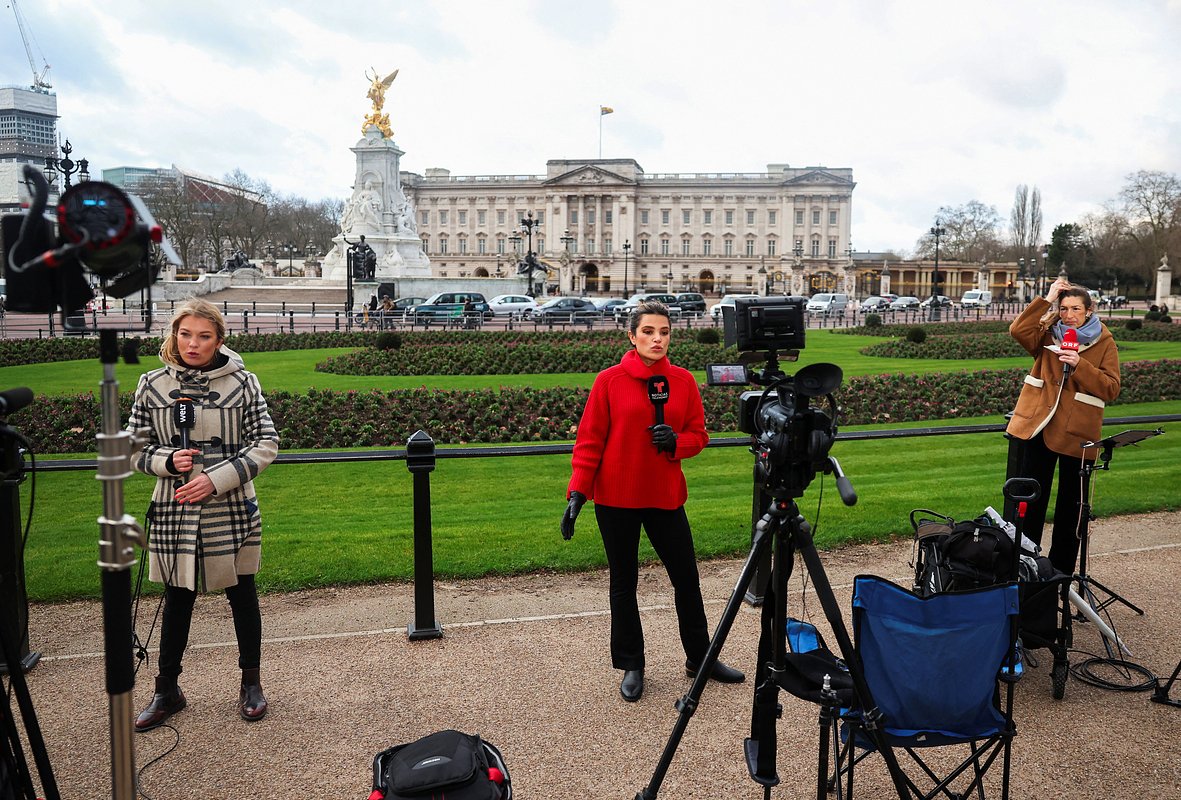King Charles III of Britain was diagnosed with cancer, it could be melanoma
British Prime Minister Rishi Sunak said that King Charles III's cancer was detected at an early stage. Experts interviewed by the media fear that the diagnosis given to the monarch may be more serious than Buckingham Palace is trying to present. Many of Karl's predecessors, including his grandparents, suffered from cancer.
Charles III's cancer was detected at an early stage
On February 5, Buckingham Palace announced that Charles III had been diagnosed with a malignant tumor. Doctors noticed the cancer when the king was hospitalized due to an enlarged prostate. No other details were provided.
After the diagnosis was announced, the monarch returned to London from Sandringham Palace in Norfolk, the royal residence where he spent time after the operation. He is expected to undergo treatment as an outpatient in the near future. There is no need to go to the hospital yet.
In an interview with BBC Radio 5 Live, Prime Minister Rishi Sunak said that specialists were able to identify cancer at an early stage. According to the politician, he was shocked and saddened by the news of the king’s illness. “My thoughts are with him and his family right now,” he said.
Sunak has no doubt that Charles III will “receive the necessary treatment and make a full recovery.”
This is what we all hope and pray for. And I, of course, maintain constant contact with him and will continue to communicate with him as usual
The king does not intend to stop traditional meetings with the prime minister, but they can take place remotely.
Charles III leaves hospital in London with his wife Camilla after being hospitalized for an enlarged prostate
Photo: Hannah McKay/Reuters
Experts name possible diagnoses for the monarch
The diagnosis given to Charles III has not yet been made public, but experts still saw cause for alarm in the official statement from Buckingham Palace.
As urologist Benjamin Brier of the University of California at San Francisco explained to the New York Times, most often when examining the prostate, a malignant tumor of this organ is found. However, in this case, palace representatives emphasized that we are not talking about prostate cancer. Brier thinks this is a bad sign.
According to the urologist, this may mean that the development of tumor cells found in the prostate began in another organ. “This is by definition metastasis,” he said.
If King Charles III was diagnosed with a malignant tumor with metastases, it means that this did not happen at the initial stage. Such tumors are less treatable
Brier explained that the cancers that most often metastasize to the prostate include melanoma and urothelial carcinoma, a type of bladder cancer. One type of urothelial carcinoma is relatively easy to treat, while another requires complete removal of the bladder.
It cannot be ruled out that the cancer was not found in the prostate itself. In particular, it could be noticed on x-rays, blood tests or tomography, or during cystoscopy. In this case, there might not have been metastases.

Journalists gathered outside Buckingham Palace following the announcement of Charles III's cancer.
Photo: Toby Melville/Reuters
Many of Charles III's relatives suffered from cancer
Malignant tumors were identified in two of Queen Victoria's children. Victoria's eldest son, King Edward VII, who reigned at the beginning of the 20th century, had a basal cell carcinoma (a type of skin cancer) removed from his nose. After that he lived for another three years. His sister, Princess Victoria, had breast cancer.
In his later years, cancer was also discovered in King Edward VIII, who abdicated in 1936 in favor of George VI, the father of Queen Elizabeth II and the grandfather of Charles III. In 1971, he was diagnosed with throat cancer. The cause of the illness could be his addiction to smoking.
Charles III's grandfather, King George VI, was also a heavy smoker. In 1951 he was diagnosed with lung cancer
In September 1951, his left lung with a malignant tumor was removed, but this delayed the development of the disease only for a few months. On February 6, 1952, he passed away.
The wife of George VI and grandmother of Charles III, Queen Mother Elizabeth, had several malignant tumors. In 1966, she had a tumor removed from her colon, and in 1984, a malignant breast tumor. Despite this, she lived to be 101 years old.
Related materials:
Prince William will take on some of the responsibilities of the monarch
While Charles III is undergoing treatment, some of his responsibilities may be taken over by the heir to the throne, Prince William. This will mainly affect the king’s social activities; Charles III himself will continue to perform constitutional duties.
At the same time, the monarch will most likely continue to independently receive and review important government documents. He is also expected to attend meetings of the Privy Council, which usually take place once a month.
No changes have been announced for upcoming foreign visits. In May, the King and Queen of Great Britain planned to fly to Canada. In October, visits were planned to Australia, New Zealand and Samoa for a meeting of heads of government of the Commonwealth countries.
#Charles #III #type #cancer #diagnoses #king #England